How Long Does House Training a Puppy Take? (And Why)

You want your puppy to be potty trained as quickly as possible. We get it! Cleaning up accidents is no fun. It's hard to manage your own schedule as a pet parent when bathroom breaks are so frequent. And you'll be able to take your pup on more adventures—like to indoor pet-friendly stores and restaurant patios—if you're able to trust they won't empty their bladder where they shouldn't.
While every puppy is an individual, some general guidelines can help you understand if you're on the right track. We promise there's a light at the end of the tunnel (and a break from the enzymatic cleaner and midnight potty trip alarms) coming soon!
Here's how to know if your potty training timeline is reasonable—plus tips to make the house training process as easy as possible on both you and your new dog. We cover:
- How long potty training usually takes
- Factors that influence house training time
- Puppy potty training basics
- When to be concerned if your dog still isn't potty trained
- Further resources, like how to handle potty training regression
How long does potty training a puppy usually take?
It can take anywhere from a few weeks to a few months for a puppy to be fully potty trained. Most dogs get the hang of going to the bathroom outside between four to six months of age.

What factors influence potty training time?
The time it takes to potty train your puppy can vary depending on things like your dog's breed, age, socialization, and the consistency of your training.
Your puppy's physical size
Smaller dog breeds have smaller bladders. This means they need to go outside more frequently! There's no way around it—it's just biology. Because larger puppies are more quickly able to hold their urine for a longer amount of time, bladder size can affect the speed of your new dog's potty training.
(Some pet parents opt to use puppy pads or even litter boxes to help with logistics during the initial potty training time with small dogs. You can read more on that below and in this longer article.)
Your puppy's age
Younger puppies have less bladder control. They need more frequent bathroom breaks than older puppies or adolescents.
A common rule of thumb: Puppies can hold their bladders an hour for every month of age, give or take one depending on other circumstances (they'll have to go sooner if they've recently drank a bunch of water, for example, but can last longer if they're sleeping).
General length between potty breaks for your puppy's age
- A two-month-old puppy (eight weeks of age) can hold their bladder for around 1-3 hours.
- A three-month-old puppy can hold it for around 2-4 hours.
- A four-month-old-puppy can last 3-5 hours.
- A five-month-old puppy can go 4-6 hours.
- A six-month-old puppy can last 5-7 hours.
- Adolescents older than seven months can usually hold their bladders as long as fully grown dogs can, between 6-8 hours and sometimes more overnight. Keep in mind you should always give your dog a regular chance to use the bathroom even if they can go longer between breaks. 4-6 hours is a nice interval. (Think about how uncomfortable it is for you to be asked to hold it!)
How you keep a consistent schedule
Routine is everything in house training. Regularly taking your puppy outside to the same designated area—and using consistent cues and positive reinforcement—can help your pup more quickly understand where it's okay to use the bathroom!
Your training techniques
Clear communication, positive reinforcement, and interrupting undesirable eliminations promptly play a significant role in the speed of potty training. It can also make a world of difference to maintain one potty spot!
We cover more of the house training process in the next section.
Your puppy's early socialization
Puppies that have been well-socialized—particularly those who've had supported exposure to different environments and surfaces during their early weeks—may adapt more quickly to using the bathroom in a range of situations. The big outside world can be distracting for a young dog during the potty training process!
Potty training basics
We know the process of house training can be daunting. Here's how to get on your way to potty training success.
Put your puppy on a regular feeding schedule
If your puppy eats on a regular schedule, it will be easier to predict when they need to use the bathroom.
- Feed your puppy at the same time each day. Keep track of when they eat and when they use the bathroom so you can start to notice their individual patterns. Your dog should consistently process food in a predictable period of time. (A bonus of this schedule: You’ll be able to notice any appetite or waste changes right away to get in touch with your vet.)
- Pay attention to any extra treats you give them during the day that might increase their need to relieve themselves. If possible, try to give treats at regular times.
- Give free access to water whenever possible, but be aware of any times they drink more than usual (like after playing or finishing a chew).
Take your puppy outside at regular potty time intervals (and increase the time between bathroom breaks slowly)
It’s important to start small during the potty training process.
Take your dog outside more frequently than you think you need to at first. Then gradually increase the intervals between their potty breaks—only when they’ve shown they can consistently handle the previous amount of time.
To start, it’s a good idea to take your puppy outside on a regular schedule every 1-2 hours. Young dogs often also need to go shortly after they:
- Wake up in the morning or from a nap
- Finish a meal
- Play or engage in another activity
Encourage your puppy to potty in the same area to create a predictable pattern
Dogs are inclined to use the bathroom in the same spot they’ve gone before. You can use this to your advantage outside! Try walking your puppy in a small circle in the same corner of your yard to encourage a healthy habit of eliminating there.
Use positive reinforcement when your dog gets it right
Don’t allow your puppy to play or run around before they’ve gone potty. But as soon as they pee or poop outside? Praise and reward them! You can use small training treats, physical affection, or a favorite toy to celebrate their job well done.
(Note: Wait until after your dog has finished eliminating so you don’t interrupt them in the act. You want to make sure they have time to fully empty their bladder before you offer a tasty treat or fun game. This can take more than 30 seconds as they grow up!)
Keep your puppy in a crate or pen when you’re unable to supervise
Dogs usually don't like to use the bathroom where they sleep or eat. By confining your pup to a smaller space (like a comfortable appropriately sized kennel, wire pen, or room with a baby gate), you can take advantage of this natural instinct to reduce the odds of accidents while you're away.
Is your puppy uncomfortable with confinement in a crate, or have you just never used one before? You can read more about kennel training an adult dog in this article and crate training a new puppy in this one!
You can also consider setting up designated potty pads in your dog’s environment if you have to leave them alone longer than you think they can hold their bladder. A couple variations of this are paper training and litter box training. (They're essentially the same thing, just with different surfaces for your dog to relieve themselves on.)

When should you be concerned if your puppy still isn't potty trained?
As mentioned above, potty training timelines can vary widely among individual dogs. There is no one-size-fits-all answer!
That said: There are general guidelines that can help you assess whether your puppy might need additional attention—or if they could be suffering from an underlying issue.
Age
Most puppies can start learning basic potty training skills as early as eight weeks old. By the time a puppy is six months old, they should have made significant progress in potty training. If your puppy is often having accidents indoors after this age, it may be cause for concern.
Consistency and training
If you have been consistently following a training routine and your puppy still hasn't shown improvement after a few months, evaluate the effectiveness of your training methods.
Are your bathroom break intervals fair to your puppy's bladder development? Are you rewarding your puppy for going outside? How about supervising them closely?
Health issues
Sometimes health issues can contribute to potty training difficulties. If your puppy is having frequent accidents, consult with a veterinarian to rule out any underlying problems like urinary tract infections.
Behavioral issues
Some potty training difficulties may be related to anxiety, fear, or other behavioral problems that hinder the learning process. A professional dog trainer or behaviorist can help you identify and address these concerns!
Life changes
Major life changes, such as moving to a new home or the addition of a new family member or pet, can disrupt a puppy's routine and contribute to potty training regression. It's more important than ever to be patient and consistent with your new dog during these times.
Professional dog trainers are here to help!
If you are concerned about your puppy's potty training progress, consult with your veterinarian and consider seeking the assistance of a professional dog trainer. They can evaluate the specific circumstances where your dog is using the bathroom indoors, provide guidance on your individual progress, and help tailor a training plan that suits both your puppy's needs and your lifestyle.
Related reading
- Puppy 101 Training Guide
- How to Handle Potty Training Regression
- How to Train Your Dog to Pee on a Pad
- How to Crate Train a Puppy
Trainer Review of this Article
There is so much misinformation out there, we want to make sure we only provide the highest quality information to our community. This is the trainer that reviewed this article:
Lindy Langum
Founder - K9 Fun Club Staff Trainer - Summit Assistance Dogs Certified in Canine Studies (CSS), NW School of Canine Studies
Most recent articles

What Is a Reactive Dog? A Complete Guide
Is your dog overly excited or fearful around other dogs? Do they bark, lunge, or whine? You might have a reactive dog. Many dog owners face this challenge. Understanding what a reactive dog is is the first step to helping them. This guide explores the common causes of dog reactivity, explains what makes a dog reactive, and offers practical tips and resources. Let's work together to build a stronger bond with your dog and enjoy stress-free walks.

Positive Dog Body Language: Signs of a Happy Pup
* All Sniffspot articles are reviewed by certified trainers for quality, please see bottom of article for details *

Best Dog Parks Near Me in Austin (Public & Private)
Looking for the perfect dog park near me in Austin? This guide has you covered. We'll explore Austin's best dog parks, from Zilker Park's popular off-leash area to smaller, quieter options. Plus, we'll introduce you to Sniffspot, where you can rent private dog parks near me. Let's find the perfect spot for your furry friend!

Shih Tzu Ownership: Ultimate Guide for New Owners
So, you're thinking about adding a Shih Tzu to your family? Excellent choice! These pups are known for their affectionate personalities and gorgeous coats. But before you bring one home, let's cover some essential shih tzu advice for new owners. This guide, created with insights from experienced Shih Tzu owners, will help you prepare. We'll explore everything from whether Shih Tzus are loyal and affectionate, to if they can be service dogs. Plus, we'll share practical tips on training, grooming, and health. Ready to become a Shih Tzu expert? Let's go!

Dog Parks Near Me: Chicago Guide (Public & Private)
Finding the perfect dog park near me in Chicago can feel overwhelming. But don't worry! This guide explores Chicago's best dog-friendly spots, from popular public dog parks near me to private Sniffspot Chicago locations. We'll cover everything you need for a safe and fun outing, including a handy checklist and tips on dog park etiquette. Whether you want a quick walk, a chance for your pup to socialize, or the best off-leash dog park experience, we've got the perfect spot for you and your furry friend.
Related articles
Top dog guides per area
Dog training guides

Dog Food Aggression: Why You Shouldn't Punish It
Does your dog ever growl when you walk by their food dish? Maybe they get possessive of treats, carrying them far away and giving you side-eye when you start to approach — or snarling at your other pets or children if they get too close.

Scent Training for Dogs: A Beginner's Guide
As almost every dog owner is aware, the nose of a dog is an amazing thing. Just as they can pick up sounds we can’t hear, their sense of smell and ability to pick up scents is well beyond ours. In fact, dogs have 40 times the number of olfactory receptors as humans.

Service Dog Training Costs: DIY vs. Pro
More than 80 million Americans rely on their service dogs to help them navigate the world. Task-trained assistance animals perform a huge range of life-changing—in many cases, life-saving—services: These dogs act as eyes for visually impaired handlers, provide mobility support, alert to seizures and blood sugar crashes, interrupt anxiety attacks, remind their people to take medications, and so much more.

How to Deal With Puppy Potty Training Regression
You thought those dreaded middle-of-the-night potty breaks were over. You were finally free from cleaning up puppy puddles. Then, suddenly, your furry friend starts having accidents again. It's frustrating, right? This puppy potty training regression is more common than you think. Don't worry; we'll help you get your pup back on track. We'll cover the common causes, offer practical solutions, and give you actionable steps to tackle this challenge together.

Dirty Dog Syndrome: Causes, Solutions, and Prevention
It's a cringe-worthy moment every dog owner dreads: your furry friend chowing down on something truly disgusting. If your dog has a penchant for poop, you're dealing with coprophagia. It's more common than you think, and thankfully, often manageable. This article explores the reasons behind dirty dog syndrome, from instinct to learned behavior. We'll also give you practical tips to help break this unpleasant habit.
Dog enrichment guides

Top 10 Dog Water Parks in the US
Do you have a water-loving dog looking to burn some energy? There are countless dog parks to visit throughout our country — but some of them become far too hot in the midday sun to be safe for your pets to play. That’s why we’ve put together a list of some of the best dog water parks throughout the United States! At these locations, your pup can frolic, splash, and swim to their heart’s content.

Best Toys for Herding Dogs: Keeping Your Pup Happy & Engaged
Herding dogs are amazing, intelligent companions. But that also means they need more than just a simple game of fetch. Finding the right toys for herding dogs is key to keeping them happy and stimulated. This article explores some of the best toys for herding dogs, including options specifically for breeds like Border Collies and Australian Shepherds. We'll help you discover the perfect herding toys for dogs to tap into their natural instincts and keep them entertained for hours.

Ultimate Guide: Dog Toys for Aggressive Chewers
Does your dog destroy every toy you give them? Is your house littered with remnants of fabric and stuffing of all different sizes? Are you tired of investing in “indestructible” toys only for your pup to still dismantle—or worse, get bored of—them in just a few days?

Daily Exercise Calculator: How Much Exercise Does Your Dog Need?
Everyone knows dogs need exercise, but how much is enough? Walks are great, but creating a truly balanced fitness plan means understanding your dog's specific needs. This post helps you develop a daily exercise calculator for your dog, considering breed, age, and lifestyle. We'll cover fun activities, understanding exercise intensity, and recognizing when your pup has had enough. Let's create a plan that keeps your dog happy and healthy!

Complete Guide To Herding With Dogs
* All Sniffspot articles are reviewed by certified trainers for quality, please see bottom of article for details *
Dog reactivity guides

Rottweiler Aggression: Truth vs. Myth
Many dogs have gotten a bad reputation over the years for being "dangerous breeds." Rottweilers are among them. Like pit bulls and other large, blocky-headed types of dogs, these powerful and beautiful animals are often assumed to be aggressive.

What Is a Reactive Dog? A Practical Guide for Owners
Does your dog suddenly transform into a barking, lunging Tasmanian devil on walks? It's stressful for both of you. If this sounds familiar, you might have a reactive dog. Understanding what is a reactive dog is the first step to calmer walks. We'll explore the common triggers and give you actionable strategies to manage and modify this behavior. Let's turn those stressful walks into enjoyable outings.

How to Socialize a Reactive Dog: A Step-by-Step Guide
Does your dog display reactivity to other pets or people? Maybe they’re a new rescue pup and are still settling into your home. Or they were sick growing up, so you missed their critical socialization period. Possibly they’ve had a bad experience after being raised as a normal puppy.

What Is a Reactive Dog? A Complete Guide
Is your dog overly excited or fearful around other dogs? Do they bark, lunge, or whine? You might have a reactive dog. Many dog owners face this challenge. Understanding what a reactive dog is is the first step to helping them. This guide explores the common causes of dog reactivity, explains what makes a dog reactive, and offers practical tips and resources. Let's work together to build a stronger bond with your dog and enjoy stress-free walks.

Best Online Dog Training for Reactive Dogs: A Practical Guide
Does your dog's reactivity make walks stressful? You're not alone. Many dog owners face similar challenges. This guide offers practical advice and support for managing reactivity, including finding the best online dog training for reactive dogs. We'll connect you with reactive dog support groups, share training tips, and explore resources like the best dog training app for reactive dogs. Let's build a stronger bond with your dog, together.
* All Sniffspot articles are reviewed by certified trainers for quality, please see bottom of article for details *
Sniffspot community guides

The State of Public Dog Parks Across the United States
From 2009 to 2020, there was a 40 percent increase in the development of public dog parks. Designated spots for canine exercise have become commonplace in every major city in North America — many pet owners won’t even consider renting an apartment that doesn’t have its own fenced-in pet area for their canine companions.

How This Family is Affording Their Dream Property Through Renting it Hourly to Dogs
Thousand Oaks, California has been a safe haven for Sniffspot host, Jen, since childhood. Having grown up in busy Santa Barbara, Jen, an introvert from an early age, would seek out solitude and serenity away from tourists attractions and droves of people visiting from elsewhere. “My grandparents own 60 acres about a 30 minute drive from here, and I grew up spending every summer and every holiday visiting them on the ranch,” Jen explained. “In Santa Barbara, we wouldn't go to the beach on the weekend because that's where everybody was, so you'd find places off the beaten path where the tourists weren't. For me, the ranch was just my happy place.”

Host Tips: Ellen K. What Makes Sniffspot Successful for Me
Ellen is the host of Country Pasture Getaway, one of Sniffspot's most popular sniff spots. She has taken the time to write up the lessons she has learned about how to be a great sniff spot host.

How this Oregon Farmer is Making a Business From Renting Her Land to Dogs
Just 20 minutes outside of the busy city of Portland, Oregon, and settled right on the banks of the Columbia River, you’ll find what countless visitors have flocked to the area in search of – mountain views, crisp, clean air, and running water for miles. What you might not expect to find, however, is a hidden oasis designed just for dogs and their people, owned and operated by a farming couple and enjoyed by visitors on two legs, and four.

Host Tips: Fran T. Providing Great Guest Service at our Spot
Fran is the host of Ranch Setting, one of Sniffspot's most popular spots. She has taken the time to write up the lessons she has learned about how to be a great Sniffspot host.
Top dog trainers in the US
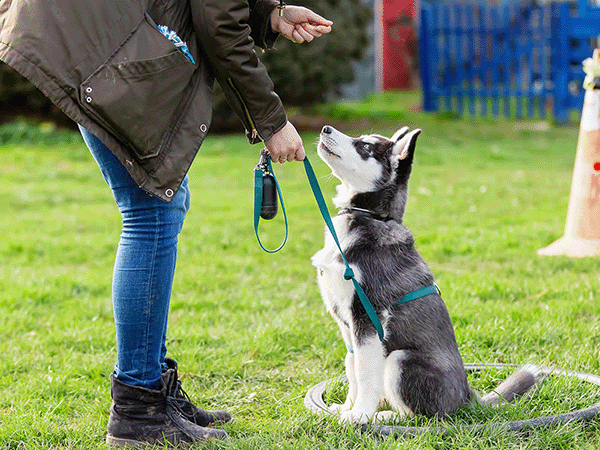
The Best Dog Trainers in the United States of 2025
This is a list of the top dog trainers in the United States, based on votes from the Sniffspot community and the general public.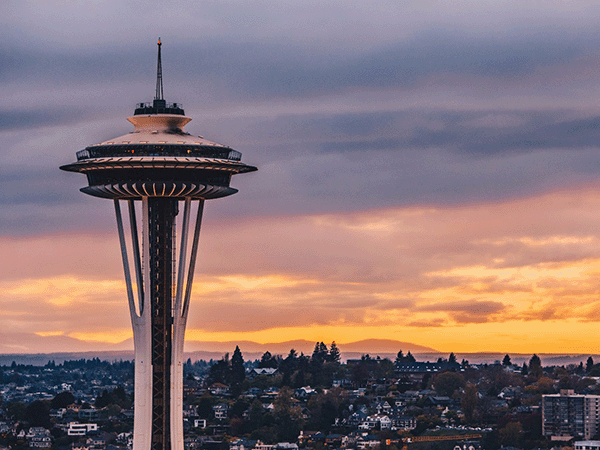
The Best Dog Trainers in Seattle, WA of 2025
This is a list of the top dog trainers in Seattle, WA, based on votes from the Sniffspot community and the general public.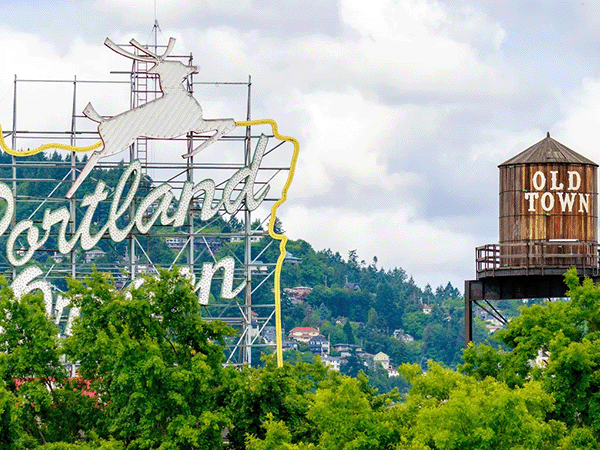
The Best Dog Trainers in Portland, OR of 2025
This is a list of the top dog trainers in Portland, OR, based on votes from the Sniffspot community and the general public.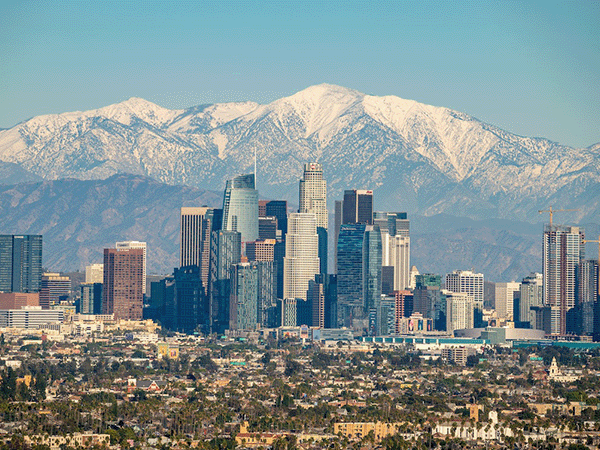
The Best Dog Trainers in Los Angeles, CA of 2025
This is a list of the top dog trainers in Los Angeles, CA, based on votes from the Sniffspot community and the general public.
The Best Dog Trainers in New York, NY of 2025
This is a list of the top dog trainers in New York, NY, based on votes from the Sniffspot community and the general public.
City dog parks guides

Top 10 Indoor Dog Parks: A US Guide
Looking for a space to play with your dog no matter what the weather’s like outside? Look no further than our list of the best indoor dog parks in the United States! These climate-controlled spaces are growing in popularity as pet ownership increases throughout the country. As a bonus, many of them also offer dog training, boarding, grooming, or daycare services on the premises.

15 Best Dog Parks in the US: Public & Private
Searching for the best off-leash dog parks near you in the United States? Whether you're looking for public dog parks with open spaces or private, fully-fenced areas, this comprehensive guide has you covered. Discover top-rated parks across the country, plus essential tips on what to bring and what to expect for your next adventure.

Dog Parks Near Me: Las Vegas Edition
Looking for the perfect dog park near me in Las Vegas? You're in luck! This guide explores all the best options for your pup, from public dog parks to private dog parks near me on Sniffspot. We'll help you find the ideal spot for playtime, socializing, and fresh air. Plus, we'll cover essential etiquette and safety tips to ensure a happy visit for everyone. Get ready for some tail-wagging fun!

Best Sniffspot Locations: Private Dog Parks Near You
Looking for the perfect dog park? Whether you need a wide-open public space or a private, fenced-in spot, this guide will help you find the best dog parks across the US. We'll cover top-rated public parks, the perks of private dog parks, and even explore Sniffspot locations – giving your pup a safe and fun place to play. Ready to find your dog's new favorite spot? Let's go!

Sniffspot: Portland's Best Private Dog Parks
Ready to discover Portland's best dog parks? Whether you're looking for a public park or the unique experience of a private Sniffspot, this guide has you covered. We'll help you find the perfect spot for your pup, with tips on what to bring, how to prepare, and even understanding dog body language. Plus, we'll explore some top Portland dog parks, including public and Sniffspot options, so you can plan your next dog-friendly adventure in the City of Roses.
Dogs breeds

German Shepherd Dog: Breed Facts, Experience and Tips from 9K+ Owners
Discover the German Shepherd Dog, a breed celebrated for its intelligence, loyalty, and versatility. Known for its impressive size and smooth, graceful movements, German Shepherds excel in various roles, including as guide, therapy, bomb detection, and police dogs, while being a devoted family companion.

Labrador Retriever: Breed Facts, Experience and Tips from 9K+ Owners
Discover the Labrador Retriever, a breed celebrated for its playful nature, affectionate temperament, and trainability. Labradors are known for their friendly demeanor and adaptability, making them perfect family companions and versatile working dogs. As one of the most popular types of retrievers, Labs are ideal companions for various lifestyles and are recognized by the American Kennel Club (AKC) as an excellent breed for families.

Golden Retriever: Breed Facts, Experience and Tips from 9K+ Owners
Discover the Golden Retriever, a popular breed celebrated for its affectionate, playful, and trainable nature. Considered a large dog, Golden Retrievers were originally bred in Scotland for hunting and retrieving game beginning in the 1860s. Today, they're recognized by the Kennel Club and the American Kennel Club (AKC) as one of the most beloved companion dog breeds.

American Staffordshire Terrier: Your Complete Guide
Think American Staffordshire Terriers are tough? Think again. While their muscular build might intimidate some, these dogs are known for their playful and loyal personalities. This guide draws on the experience of nearly 10,000 AmStaff owners to reveal the truth about this often misunderstood breed. Want to learn more about caring for an American Staffordshire Terrier? You're in the right place.

Australian Shepherd Facts: Breed Info & Care Guide
Discover the Australian Shepherd, an AKC breed celebrated for its trainable, playful, and affectionate nature. Despite its name, the Australian Shepherd is actually a native breed to the United States, originally developed to breed on farms and ranches. Considered a medium dog, Australian Shepherds were bred for herding beginning in the 1950s. As one of the high-energy breeds, Aussies are known for their boundless energy and need for regular exercise, including aerobic exercise.
Top dog names in the US
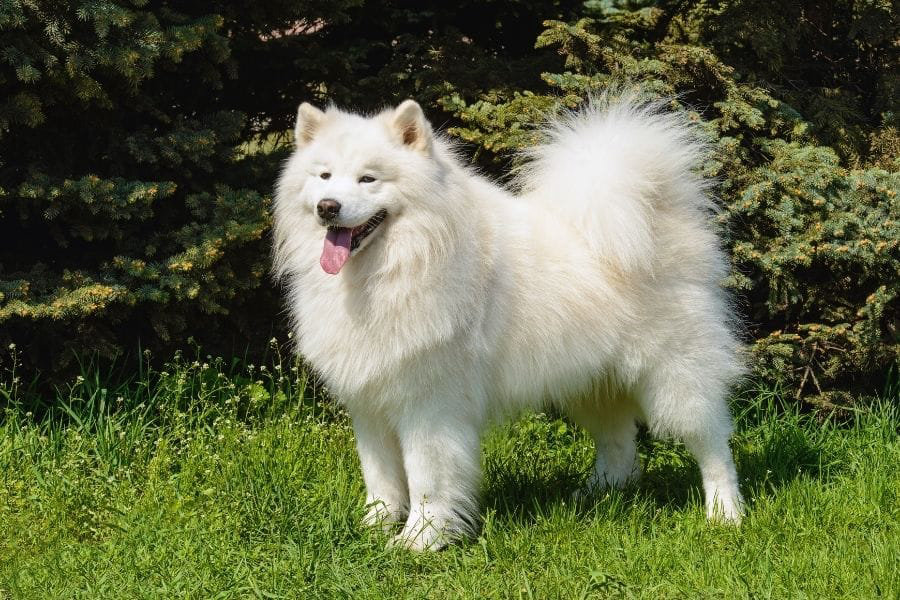
Top 1,000 Most Popular Dog Names
Looking for the perfect dog name for your new pup? We have created filterable lists of dog names from our database of hundreds of thousands of Sniffspot users. You can filter by gender, breed and state to find the most cute, unique and creative dog names.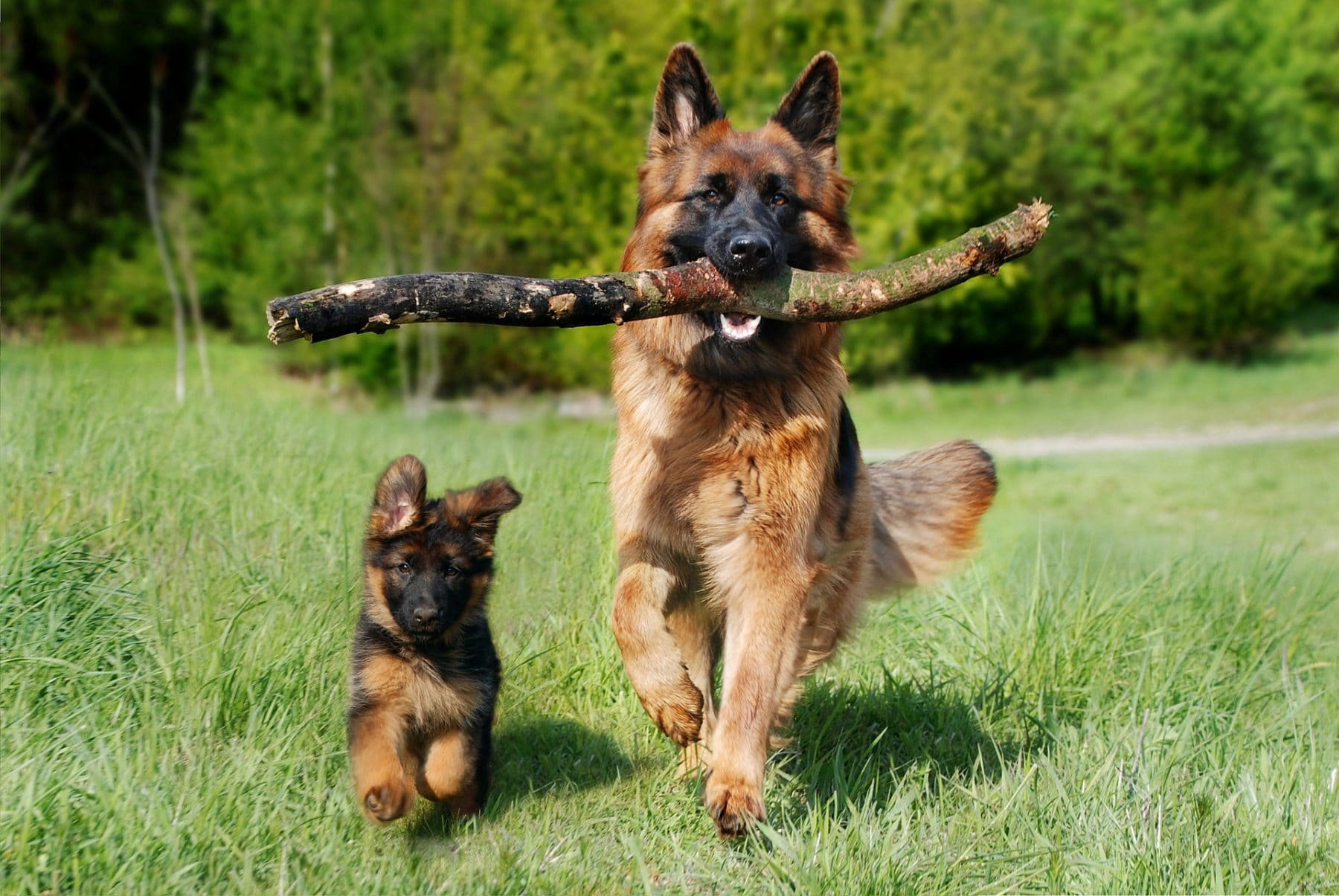
Most Popular Male Dog Names
Looking for the perfect dog name for your new male pup? We have created filterable lists of male dog names from our database of hundreds of thousands of Sniffspot users. You can filter by gender, breed and state to find the most cute, unique and creative male dog names.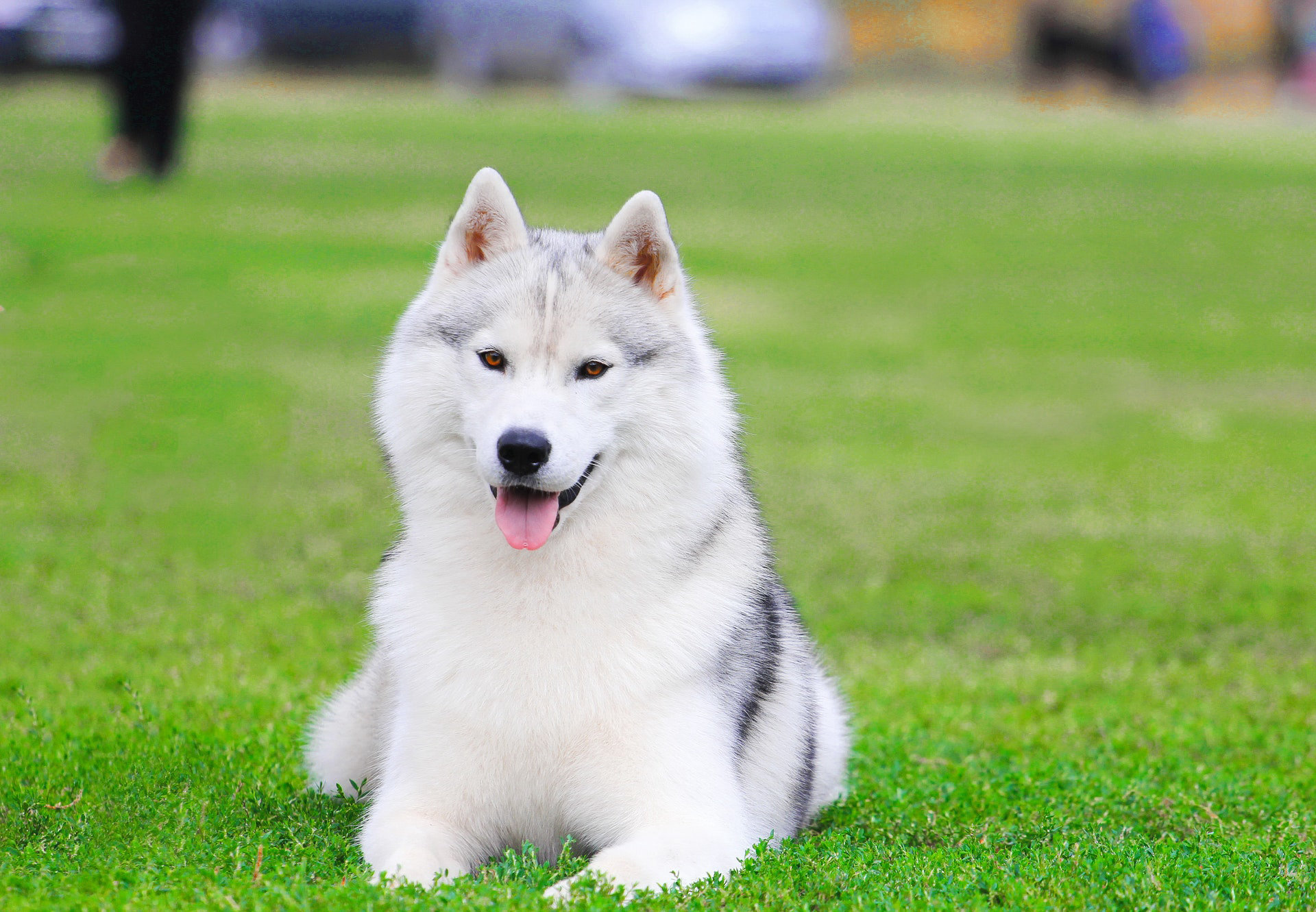
Most Popular Female Dog Names
Looking for the perfect dog name for your new female pup? We have created filterable lists of female dog names from our database of hundreds of thousands of Sniffspot users. You can filter by gender, breed and state to find the most cute, unique and creative female dog names.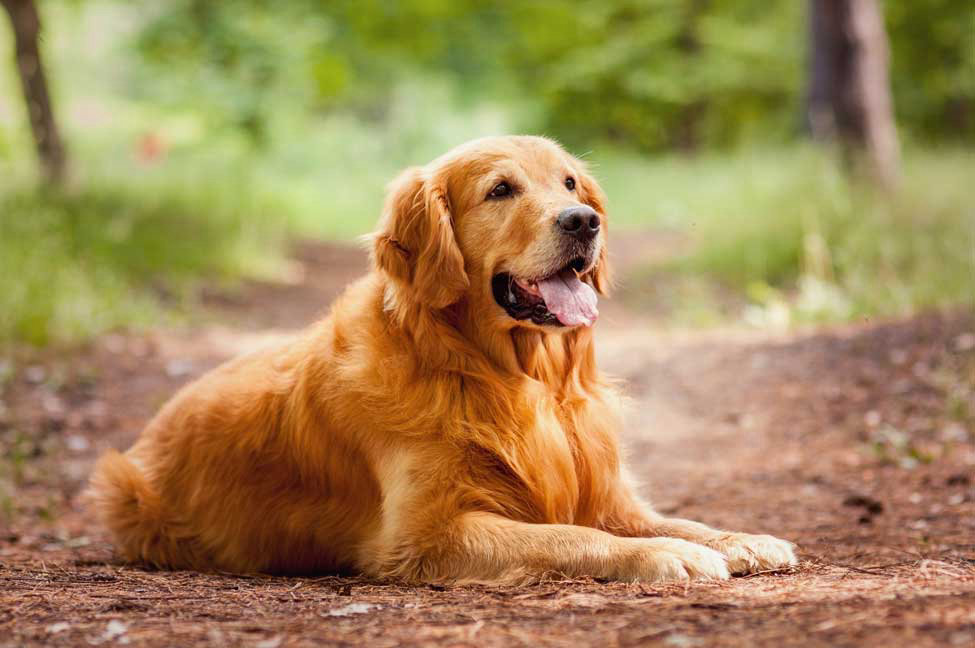
Most Popular Golden Retriever Names
Welcome to our comprehensive list of Golden Retriever dog names, curated from our vast database of Sniffspot users. Filter through hundreds of thousands of options by gender, breed, and state to discover the most adorable, original, and imaginative names for your beloved Golden Retriever.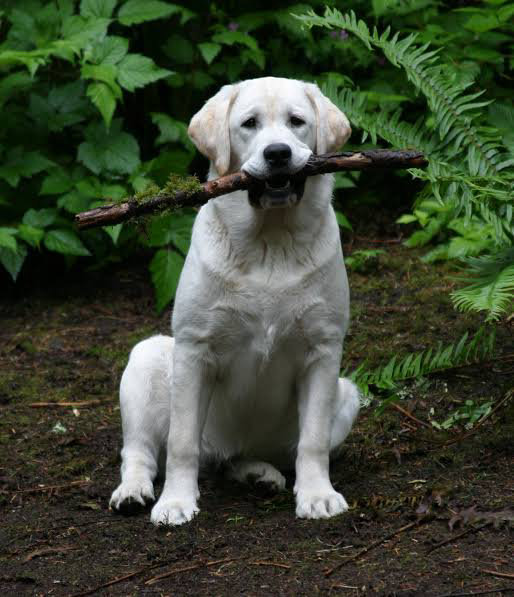
Most Popular Labrador Retriever Names
Welcome to our Labrador Retriever dog names page! Here you can browse through filterable lists of names for your beloved furry friend, ranging from cute and classic to unique and creative options. Our database of hundreds of thousands of Sniffspot users ensures you'll find the perfect name for your Labrador Retriever, whether you're seeking a name for a male or female, based on breed or state.
Top dog rescues in the US

The Best Washington Dog Rescues & Shelters in 2025
This list showcases the top dog rescues & shelters in Washington. These remarkable organizations have been recognized for their unwavering dedication to the well-being of countless dogs.
The Best Oregon Dog Rescues & Shelters in 2025
This list showcases the top dog rescues & shelters in Oregon. These remarkable organizations have been recognized for their unwavering dedication to the well-being of countless dogs.
The Best California Dog Rescues & Shelters in 2025
This list showcases the top dog rescues & shelters in California. These remarkable organizations have been recognized for their unwavering dedication to the well-being of countless dogs.
The Best Florida Dog Rescues & Shelters in 2025
This list showcases the top dog rescues & shelters in Florida. These remarkable organizations have been recognized for their unwavering dedication to the well-being of countless dogs.
The Best New York Dog Rescues & Shelters in 2025
This list showcases the top dog rescues & shelters in New York. These remarkable organizations have been recognized for their unwavering dedication to the well-being of countless dogs.






















